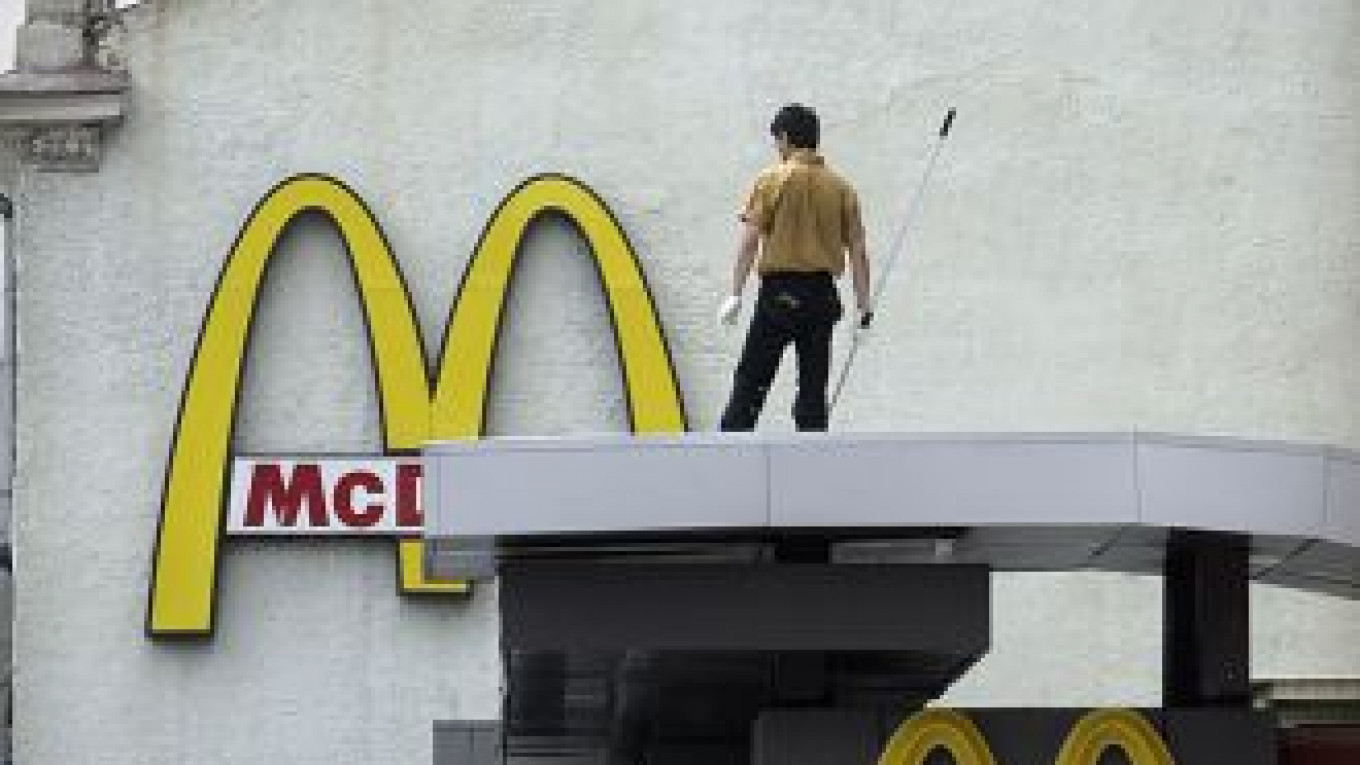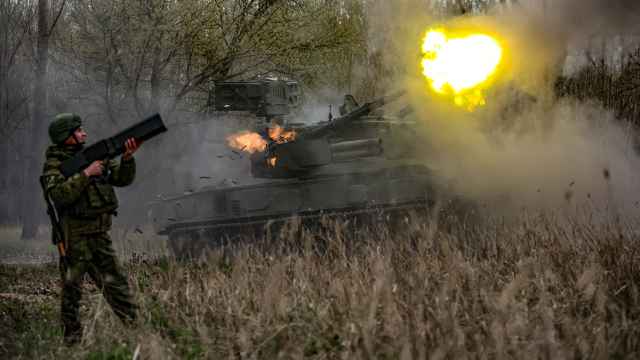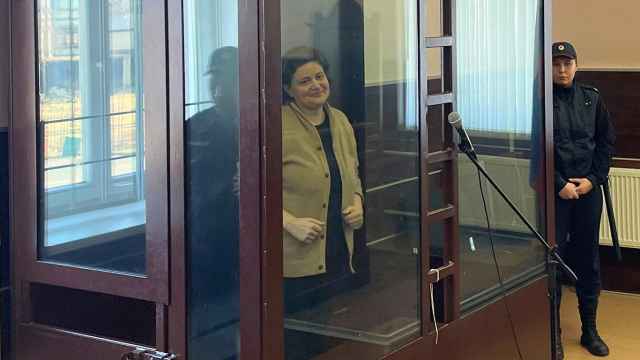McDonald's, one of the biggest franchisers in the world, will continue to directly own all of its Russian restaurants for the near future, Khamzat Khasbulatov, the corporation's president in Russia and Eastern Europe, said Wednesday.
"We have a successful operation, we don't have the motivation to franchise," Khasbulatov said.
Khasbulatov touted the company's franchise model in use worldwide, but said there are some risks involved in applying it to Russia. "There are judicial risks," he said, without elaborating.
Although the franchise model is widely used in Russian business, the law does not recognize the term. The legal code only has a clause about "commercial concessions." A new bill is under review at the State Duma that will make franchising official.
Russian Franchise Development Association president Alexander Mailer compared the vague legal situation around franchising to the often quoted talk show when a female citizen maintained that there is no sex in the Soviet Union — meaning the activity was never publicly discussed in the U.S.S.R.
Franchising requires a healthy small business environment with entrepreneurs who have access to large amounts of startup capital — which is in short supply in Russia. Lack of training and intellectual property protection also stands in the way of successful franchising operations.
Last year, the fast-food giant opened 31 restaurants in the country, mostly in Moscow and St. Petersburg and regions surrounding the cities, and has expanded as far south as Belgorod. The total number of McDonald's in Russia at the end of 2010 was 275. All restaurants are in the European part of the country. Khasbulatov said this is because of logistics and infrastructure challenges.
Local restaurants serve about 700,000 customers a year on average, one of the highest numbers for McDonald's in the world. In 2010, roughly 200 million people ate at outlets in Russia.
The company plans to open 40 more restaurants in 2011 — at least half of them in Moscow, St. Petersburg and surrounding regions. A McDonald's is slated to open in a few weeks in Veliky Novgorod, an ancient city 530 kilometers northwest of the capital.
The company has invested heavily in building and training its local supply chain — at one point even owning its own factory. Now McDonald's sources about 80 percent of its ingredients domestically, but said it plans to increase that to 100 percent eventually.
McDonald's has enough cash flow to finance expansion and improvement of existing facilities, Khasbulatov said.
Last year, the company invested 5 billion rubles ($176.2 million) to open new restaurants and modernize facilities. This year McDonald's expects to spend even more, but exact figures are not available.
Russia may not be an ideal franchising landscape, Mailer said, but the main reason for the company's reluctance is that they are so successful here. The chain attracts a record number of customers and has virtually no competitors.
"What's the point of sharing profit with an outsider?" Mailer said.
McDonald's has successfully franchised in nearby countries including Georgia, Moldova and Latvia. The corporation might come up with a franchise strategy for Russia in about two years, Khasbulatov said.
A Message from The Moscow Times:
Dear readers,
We are facing unprecedented challenges. Russia's Prosecutor General's Office has designated The Moscow Times as an "undesirable" organization, criminalizing our work and putting our staff at risk of prosecution. This follows our earlier unjust labeling as a "foreign agent."
These actions are direct attempts to silence independent journalism in Russia. The authorities claim our work "discredits the decisions of the Russian leadership." We see things differently: we strive to provide accurate, unbiased reporting on Russia.
We, the journalists of The Moscow Times, refuse to be silenced. But to continue our work, we need your help.
Your support, no matter how small, makes a world of difference. If you can, please support us monthly starting from just $2. It's quick to set up, and every contribution makes a significant impact.
By supporting The Moscow Times, you're defending open, independent journalism in the face of repression. Thank you for standing with us.
Remind me later.






